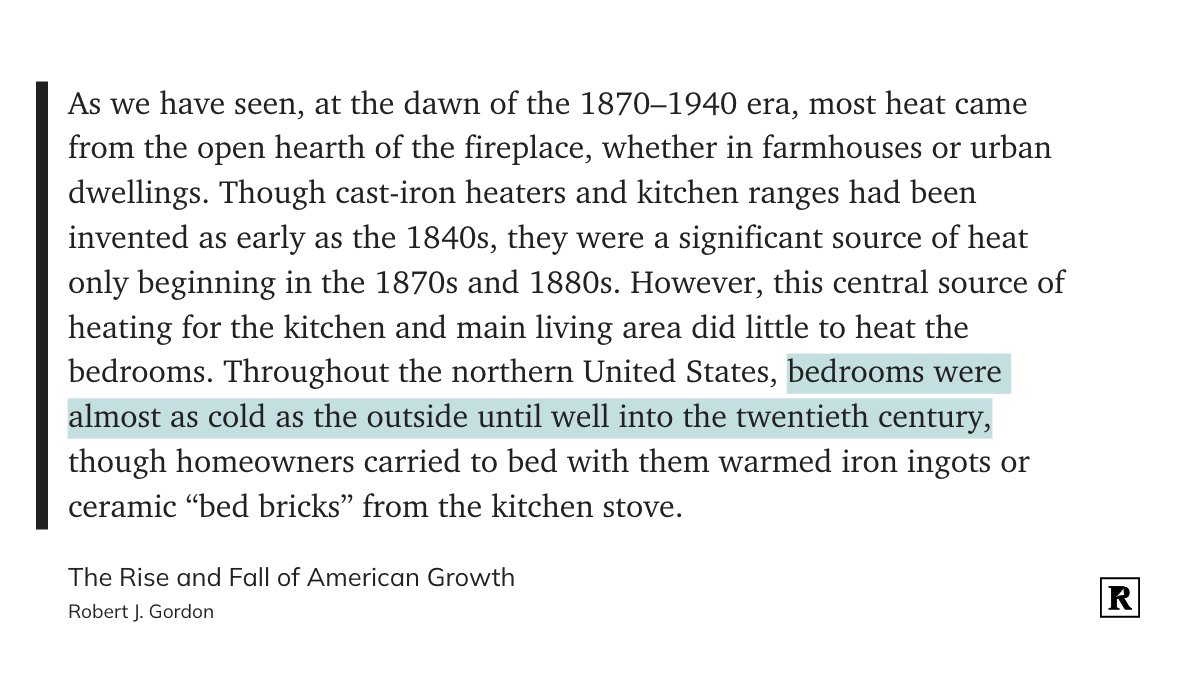Mass transit came before cars. It was good, but not enough. There was tremendous demand for cars, and consumers rapidly switched: pic.twitter.com/x70vnYd0P1
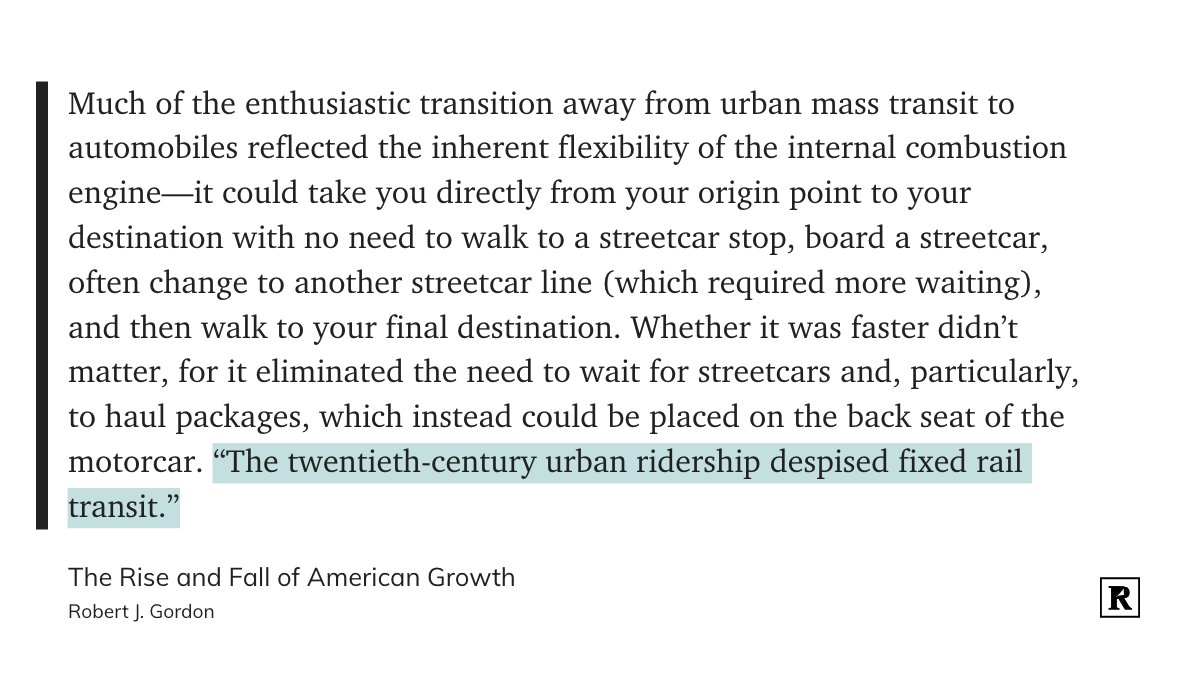
The phonograph was invented in the late 1800s, but for decades, recording technology was quite primitive by today's standards: pic.twitter.com/RcVLhkSbKO
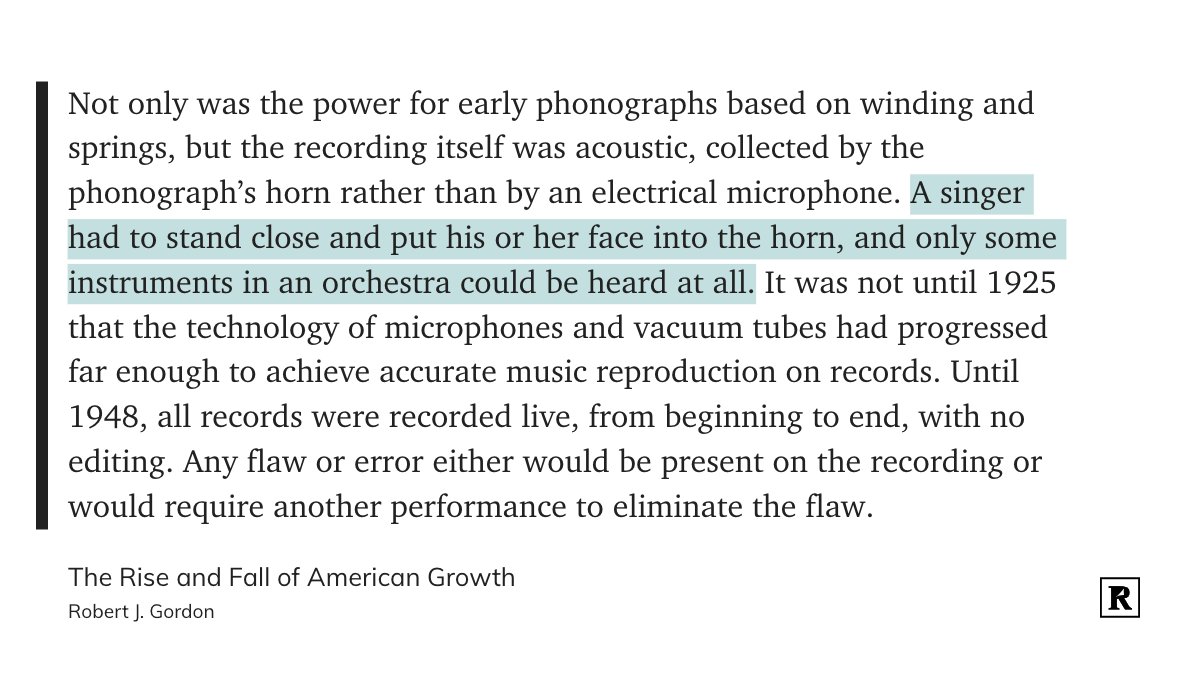

Household entertainment, such as it was, c. 1870: pic.twitter.com/RHGXTxY4pX
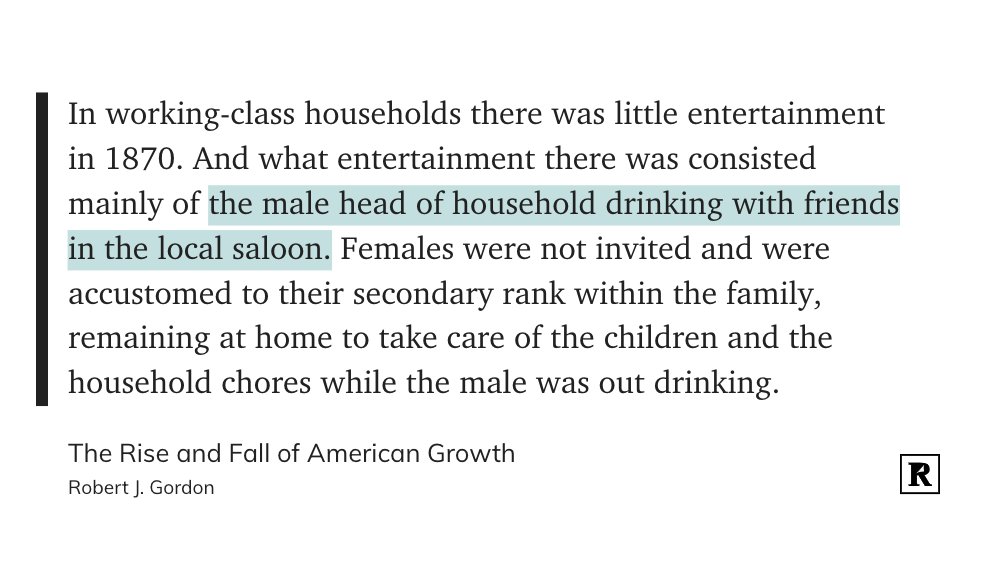

The transition from urban transit to automobiles was “enthusiastic”. “The twentieth-century urban ridership despised fixed rail transit.” pic.twitter.com/OUlCxig4HR
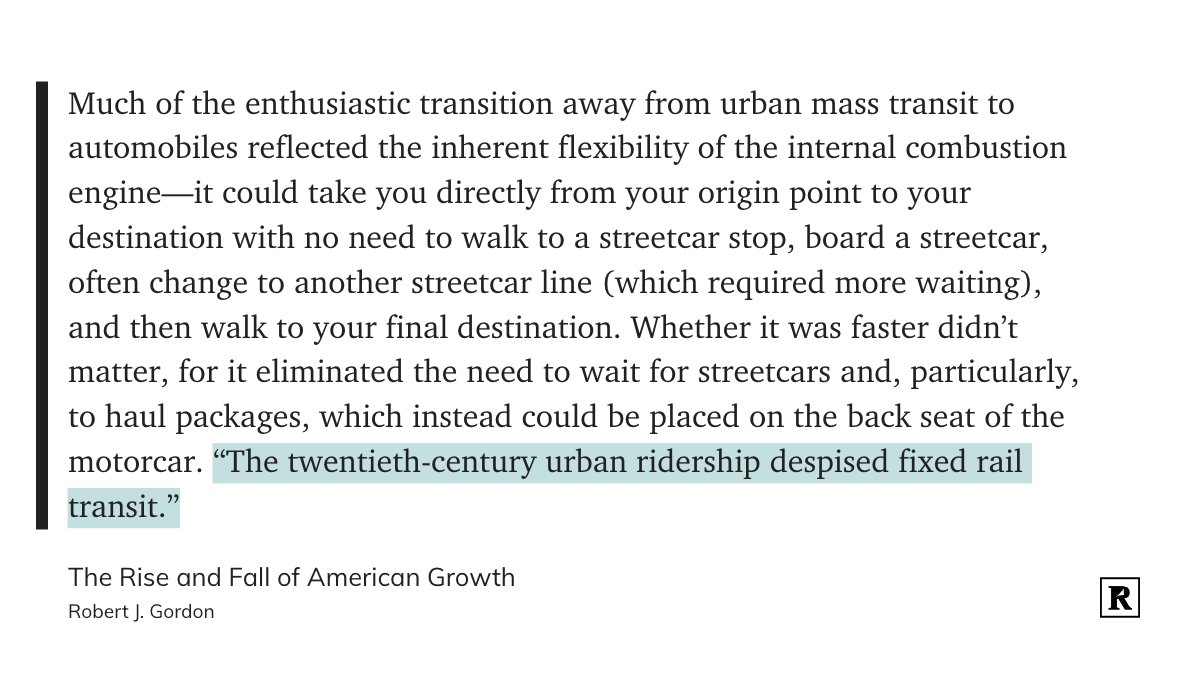
Job security is much greater today than in the early 20th century and before. Day labor and piece work were gradually replaced with full-time permanent employment. pic.twitter.com/7I5ciw6GTI
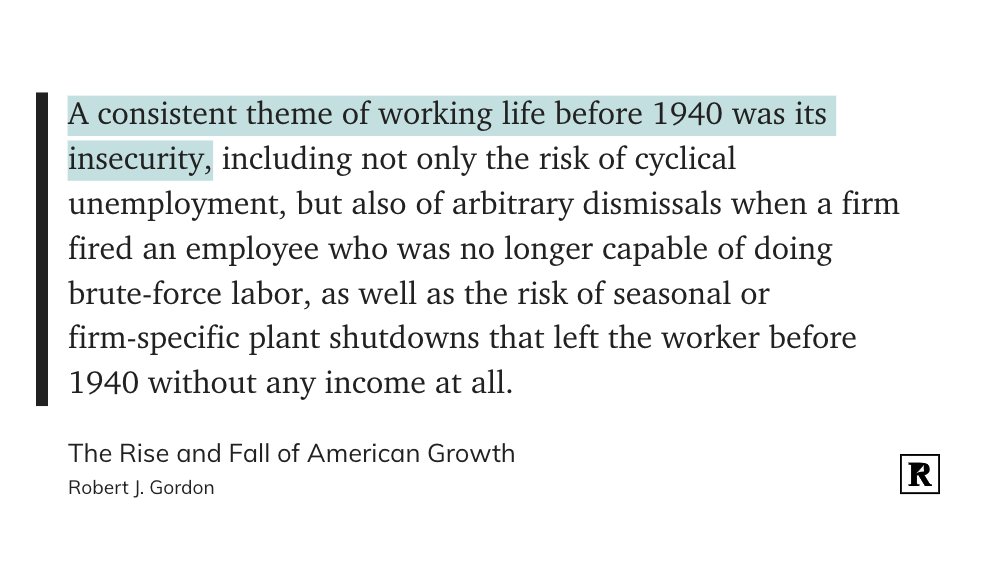

Day labor and piece work were gradually replaced with full-time permanent employment.

Retirement is a 20th-century invention. The machines *did* take our jobs—they took jobs away from the elderly after retirement, from school-age children, and from everyone else after 5pm and on the weekends. And that's a good thing. pic.twitter.com/fAY76f8UM6
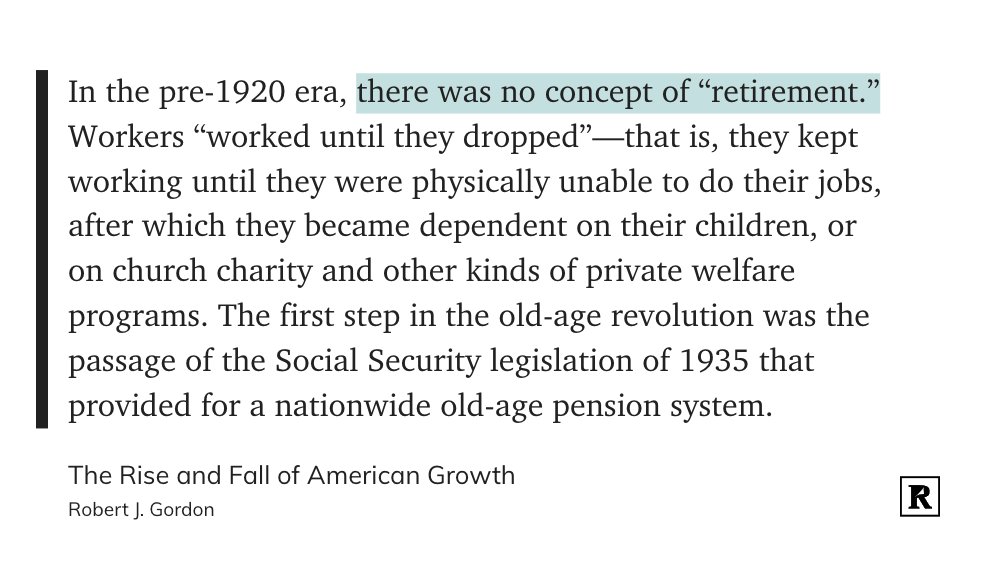

The machines did take our jobs—they took jobs away from the elderly after retirement, from school-age children, and from everyone else after 5pm and on the weekends. And that's a good thing.
Imagine having no central heating, and having to take a hot brick from the kitchen stove to your room to warm up your bed at night: pic.twitter.com/rAMaK8XFGn
